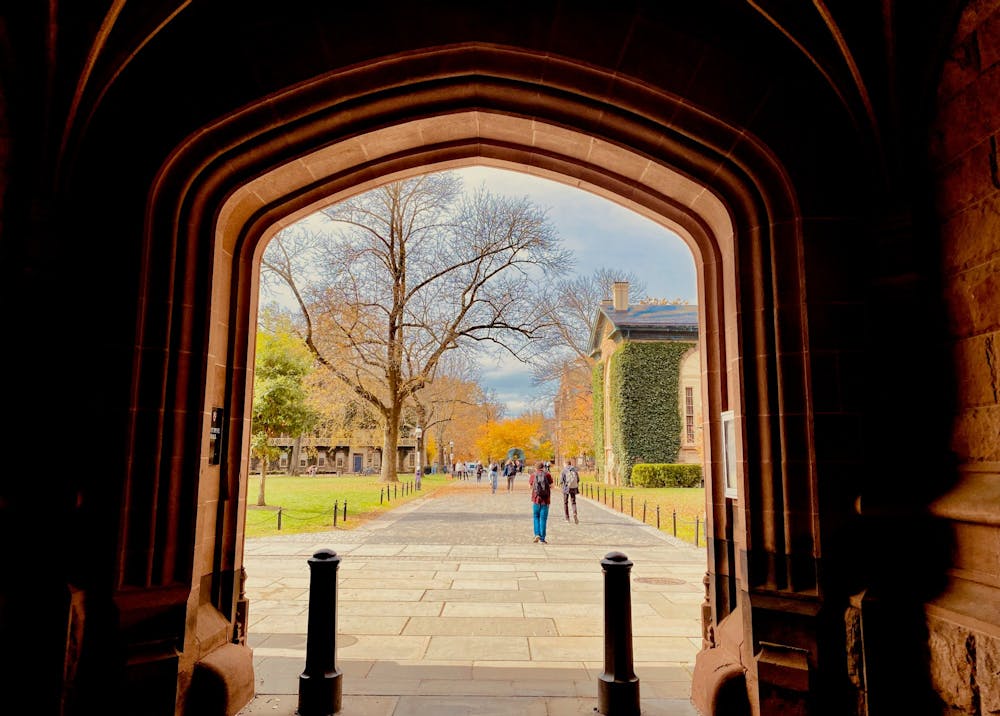In April 2022, the faculty approved a proposal to change the University’s longstanding terminology of “concentrations” to “majors” and to create a new “minors” program.
With the first class of students who can earn minors about to enter their junior year, the Office of the Dean of College (ODOC) and Undergraduate Student Government (USG) Academics Committee released a new list of nine minors in an email on Friday, April 14.
As part of Princeton’s transition from certificates to minors, members of the Class of 2025 and onward will be able to enroll in minors.
According to administrators, minors are set to replace certificates entirely within two years. The speed of the conversion to minors is a new development, as the University previously implied that students would be able to earn a combination of minors and certificates for “several years.”
Administrators said that the benefits to students of the minor program include that minors don’t have to be interdisciplinary, leading to more minors, and that the nomenclature may be better understood off campus. Students will face a cap of two minors, as opposed to the previously unlimited number of certificates. Minors, like certificates, will continue to appear on transcripts after students graduate, but will have greater restrictions on double-counting courses for a student’s major and a minor.
The currently approved list of minors includes History of Science, Technology, and Medicine; Values and Public Life; Materials Science and Engineering; East Asian Studies; East Asian Studies: Chinese Language, Korean Language, or Japanese Language; Classics; Quantitative Economics; English; and History. Four of the nine currently approved minors are based on previously established certificate programs, whereas five are newly established minors.
There are also eight potential minors currently under review by faculty and 19 currently under review by The Committee on the Course of Study (COCS). The full list of minors under review was included in the April 14 email.
The list of approved minors will likely increase after the COCS meetings on April 19 and a faculty vote on May 15. Updates will be disseminated through USG communications.
The existing certificate program is set to be phased out within two years, and any class that matriculates while certificates exist will still be eligible to choose a minor or certificate. The Academics Committee also plans to create an advising website before next semester that will have resources available for students to navigate the transition and the new program.
In an interview with The Daily Princetonian, Associate Dean of the College Rebekah Peeples said, “I think one of the biggest benefits to students is that departments can now offer a minor.” Certificates, she noted, needed to be interdisciplinary, “which meant that a student who took five courses in English and really wanted to have that represented as a coherent body of coursework on their transcript wasn't able to do so.”
Associate Dean for Academic Advising Cecily Swanson said that she hopes that “students themselves will find a greater sense of community when they participate in a minor” given the “more defined parameters” and structure to minors.
She added, “The shift in nomenclature, from certificate and concentration to minor and major, I think will be enormously helpful to students as they take their degrees out into the world.”

Academics Committee member Vivian Bui ’26 wrote in a statement to the ‘Prince’ that “the minors initiative is a necessary transition in order to reward Princeton students’ hard work in a way that aligns with the majority of colleges across the nation.”
Guidelines for the minors rollout state that students may complete up to two minors, while students are currently eligible to pursue as many certificates as possible. Swanson said that the “guidelines are based on what's happening in the real world with students.” She wrote, in an email to the ‘Prince,’ that, for the Class of 2022, 40 percent of students did not earn a certificate at all. “Among those who did earn a certificate, the vast majority earned only one. Very few students earned more than two,” she said.
Peeples stated that these guidelines would also help “dial back the social pressure around potentially pursuing multiple certificates.” Swanson also encouraged students with concerns to reach out to their deans during this transitional period.
“The inclusion of minors into our curriculum is another step into our desire to adapt to students’ academic needs,” wrote USG Academics Chair Srista Tripathi ’25 in an email to the ‘Prince.’
She added, “The Academics Committee truly wants to allow students to engage in the type of learning that suits them best, and this transition represents our commitment to allowing student voices to be included. Going forward, the hope is that students will be able to take advantage of these new opportunities in new, distinct paths of study.”
Nandini Krishnan is a staff News writer for the ‘Prince’ who usually covers the USG.
Please send any corrections to corrections[at]dailyprincetonian.com.








